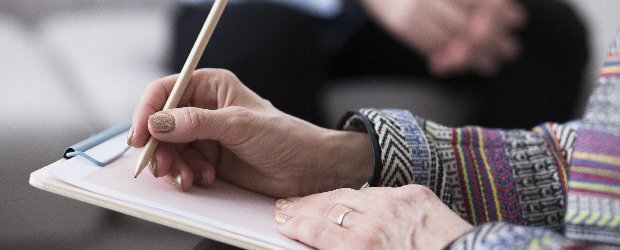By Malka Sigal, MSW/PhD student at Yeshiva University
As a new social work student, one of the things I was most excited about was my internship. As I started planning for my first, I was nervous. I was just starting social work school with only a few classes behind me. Was I really ready? How could my social work internship trust me with practice when I was so new?
As a student at Yeshiva University, we complete two social work internships designed to give us hands-on experience in social work practice. As an intern, I discovered that my supervisor (also called a field instructor) would be there to guide me and direct my practice. One of the tools my supervisors and I have used is called a process recording.
Process recordings are an important part of a social work student’s education. These documents are where a social worker records and analyzes a particularly significant part of their week’s practice. Students review their process recordings with their field instructors, who help them learn from mistakes and apply what we learn in class to our practice. As part of that process, the student writes down an interaction with a client, co-worker, community member or other important person. Then, the student describes what they were thinking and—the hardest part—what they were feeling.
Process Recording as a Tool
While it’s tempting to worry about whether you are writing down the interaction exactly as it happened, my first-year field instructor gave me great advice. He told me that in the verbatim style, I shouldn’t worry about memorizing the exact words from an entire conversation. Instead, when it ended, I should think back on the part that stuck out the most to me, a part where I could effortlessly recall the exact words that were said. That moment, captured and flagged by my subconscious, was the part of the conversation that I needed to write about in a process recording.
My field instructor’s advice has been monumental in shaping me as a social work student. The key here is trust your own mind when it tells you that something is important. Your mind will find those important moments and make them stick out. It might have been a moment you said the wrong thing or weren’t sure what to say at all. It might have been a moment that brought up an emotion in you, a connection to a previous experience in your own life. It might have been a moment when you applied the skills you learned in the classroom effectively.
Often for my process recording, I will pick a moment because it really gnaws at me. If there was an interaction that stood out to you, that sticks in your head, that nags at you and keeps you up at night, that’s a big signal that you should write a process recording about it.
You can then reflect in your process recording about what caused this moment to stand out, analyze your actions and reach a conclusion about why you acted in a certain way. The process recording then allows you to consider your actions from a removed standpoint, so you can break them down. If you did something right, use the process recording to understand why, so you can repeat it intentionally. If you did something wrong, again use the process recording to understand why. A process recording gives you self-awareness.
How does this help you be a better social worker? Once you have identified your past feelings, motivations and actions, your self-awareness will inform your social work interventions in the future. The next time you are faced with a situation that makes you feel the same things, you can identify that situation and those feelings as they happen. You might encounter a conflict between your personal values and the values of the profession, or meet a client who reminds you of a situation your friend was in. Having already looked at your own reaction to this in a process recording, you can use your self-awareness to make your next choice in service of your client and choose to act in your client’s best interest.
Field Placement at Yeshiva University
Social work internships are a critical component to earning your graduate degree. For both on-campus and online students, the practicum experience provides the opportunity to step into a real-world environment to practice and better understand every facet of the client relationship. Internships also allow students to work alongside professionals who can provide insights and practical support.
Students in Yeshiva University’s online Master of Social Work need to complete a practicum through their first and second year of coursework. Throughout the online program, students will gain a better understanding of group work, community practice and advanced clinical practice with individuals and families. The practicum provides them with the opportunity to experience working in hospitals, welfare agencies, mental health facilities, schools and other institutions. Explore a curriculum that prepares students for diverse client types and environments, and learn more about practicum opportunities at Yeshiva University.

